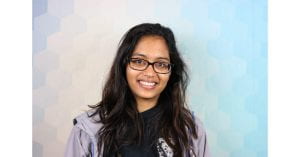
It’s Not a Disability, It’s a Different Ability
If someone were to ask me who Cherry was to me, I’d tell them that she was my younger sister without hesitation. Though we aren’t related by blood, I’ve known her since she was born and I was eleven months old, and we grew up together until I turned eight years old. Our families have moved since then, but we still live less than half an hour away from each other, and we are still just as close. To me, Cherry is one of the smartest people in the world. She takes advanced placement classes at school, something that many normal people stay away from because they’re just not capable. From a young age, she’d been very advanced in math, taking advanced math classes and solving problems faster than anyone in the room.
Up until ninth grade, I frequently used the phrase “that’ retarded” to describe a situation I thought was stupid or was displeased with; essentially, I used it very derogatorily and carelessly. However, I didn’t realize that I should not have been using the word in such a way until a girl from Social Emphasis Club at my school explained how it could be offensive. “Imagine if someone wanted to say that something was dumb and went, ‘That’ soooo white!’ or ‘That’ soooo Indian!’ Don’t you think it would be offensive to white people? Wouldn’t you feel offended because whoever said that was implying Indian people were dumb?” When I nodded, she asked, “So, what makes saying that something is retarded okay?”
The one thing that gives away that Cherry suffers from slight, mental retardation is that she’s not emotionally receptive. Like everyone else, she has other faults, too. She goes overboard with things and isn’t the greatest at following instructions. She doesn’t understand the idea of personal space; she’ argumentative, and gets angry very quickly. However, she’ practically my younger sister, so I’ll gladly deal with these sides of her. She’s one of the most caring people I know, and when she’s happy, everyone around her is happy, too. Bringing joy is just one of the many traits that make her such a great person.
The girl from Social Emphasis Club, a club to raise awareness about differently-abled students, urged me to attend a meeting where I learned about what “retarded” really meant. It made me rethink all the times I’ve used the word in incorrect contexts, and I realized by doing so, I was offending Cherry. People classified as mentally retarded are ostracized, and even more specifically, Cherry was medically categorized into this group. One day when I was visiting her, she told me about her classmates who were bullying her and pushing her away, and that she didn’t know why. So, take a minute and imagine your sister, coming up to you and telling you that she was being bullied at school and didn’t know why. Then, imagine knowing why she was being bullied for a condition she had no control over. Then, imagine that by using the word retarded to imply someone or something was silly, you were condoning this. Essentially, imagine learning that, unintentionally, you’ve been encouraging people to ostracize your sister. It fills you with guilt, and it makes you wish that you had understood the problem with the word beforehand.
I had been using retarded so frequently that I thought it would be hard to cut it out of my vocabulary, but Social Emphasis Club had a pledge, making those who signed the pledge promise that they wouldn’t use the word derogatorily. The pledge was just a piece of paper and no one would actually enforce it; however, to me, it was a promise I was making to Cherry. Though I am usually non-confrontational, I find myself asking people to stop saying the word in a demeaning way, because to me, it feels as though the person using the word is insulting Cherry. Eventually, I hope that people begin expressing their disdain for a situation in a way that does not demean an entire group of differently-abled people, and that though different, differently-abled does not mean abnormal.
